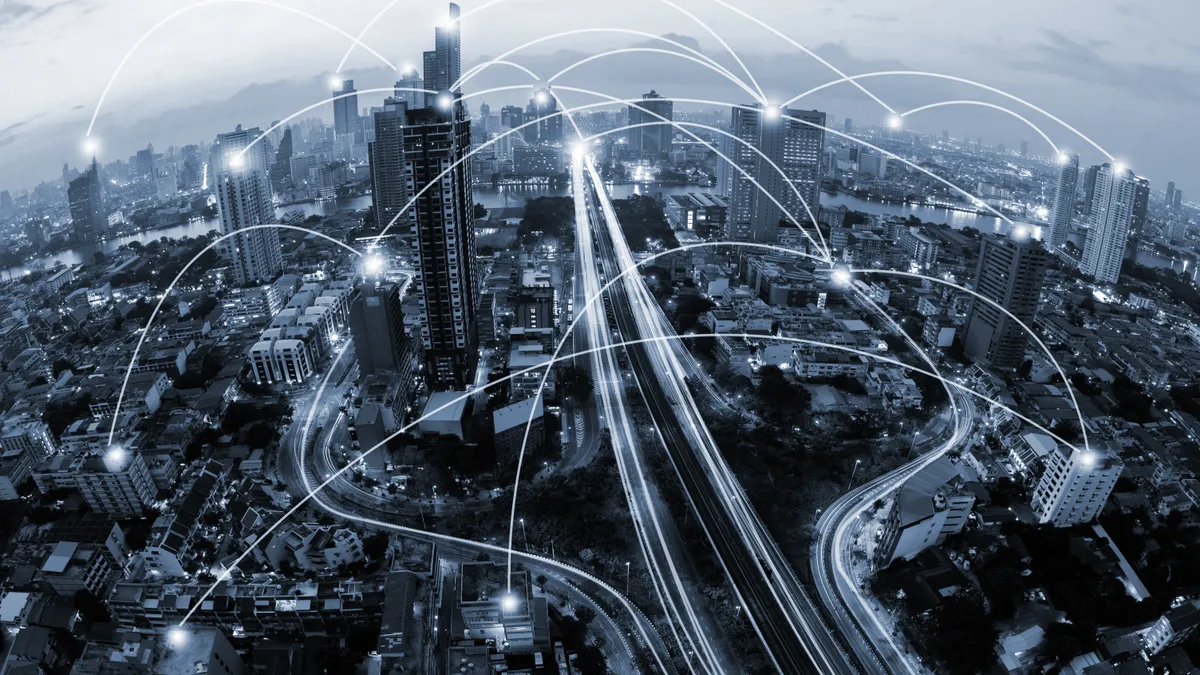Dive Brief:
- New York City and Washington, DC are among 10 U.S. cities to be ranked in the Institute for Management Development’s (IMD) 2020 Smart City Index. Singapore; Helsinki, Finland; and Zurich, Switzerland were listed as the top three cities in the index, while NYC and DC ranked 10th and 12th on the list, respectively.
- IMD said this year's index suggests the smartest cities have embraced technology amid the new coronavirus (COVID-19) pandemic and have combined that with strong leadership to tackle the crisis. IMD warned, however, that the disease could widen existing inequalities between cities of varying sizes and within cities themselves.
- IMD also noted the rise of so-called "second cities" outside capital cities, which can improve a country’s overall competitiveness and ensure that economic development and opportunities are not only focused in one area. IMD said that may disadvantage leading city-state Singapore in the long term, however.
Dive Insight:
The IMD ranking surveyed hundreds of citizens across 109 cities in April and May of this year and asked them about technological provisions across health and safety, mobility, activities, opportunities and governance. It found U.S. cities are faring well in the international landscape, with Los Angeles (No. 26), San Francisco (No. 27), Denver (No. 35) and Chicago (No. 41) leading the way.
Respondents in both New York and Washington, DC said that air pollution and traffic congestion are concerns in their respective cities, and that the public health and safety provisions in both cities are adequate but have room for improvement. More than half of residents in both cities said car-sharing apps and bike-sharing have reduced congestion, while the ability to do more things online, including interacting with city government, has made life easier.
Despite some cities and residents being able to adapt their operations and lives to the pandemic, many cities — even those that appear to do well in these rankings — are facing difficulties, said Jose Caballero, a senior economist at the IMD World Competitiveness Center and a co-author of the report. Inequities in areas like internet connectivity and public health that existed before coronavirus have been magnified by the pandemic, Caballero said, suggesting cities will need to address those inequities to stay competitive.
"When we talk about competitiveness, I always say, forget about any program about competitiveness, you need to deal with the structural inequalities and disparities you already have," Caballero said.
But technology has been crucial in cities' COVID-19 response, as IMD’s rankings found that those with more technology have been more successful in mitigation efforts. That has been seen particularly in NYC and DC, where leaders have been able to utilize numerous methods of public outreach to spread information and are experimenting with various tech initiatives around contact tracing.
"[These rankings are] based on perception," Caballero said. "What we think that we are capturing in terms of COVID-19 here is that in some cities, the flexibility and perhaps the agility of the policymakers have facilitated the response through the technology they have available. So in other words, if there are cities that somehow are able to readapt their available technologies to deal with some aspect of the pandemic, perceptions are impacted positively."
The impacts of the pandemic may take a long time to be fully seen, Caballero said, even as cities worry about short-term budget constraints resulting in painful program cuts. While some mayors have been bullish about the need to invest quickly in technology and infrastructure to stimulate their cities' economies, Caballero said the impact on human development could take longer to measure and be more difficult to navigate out of.












